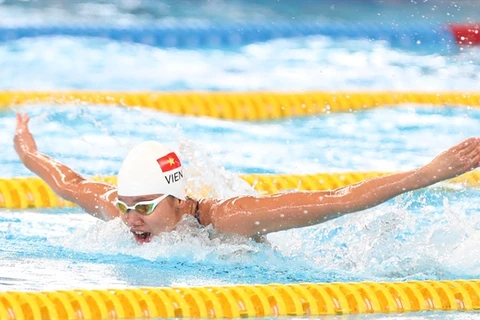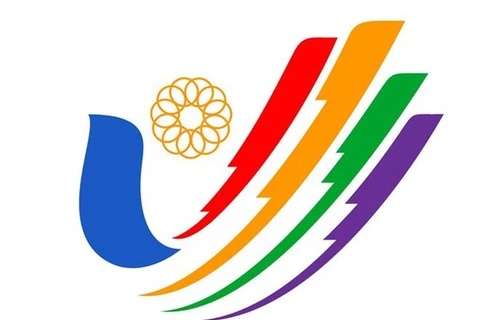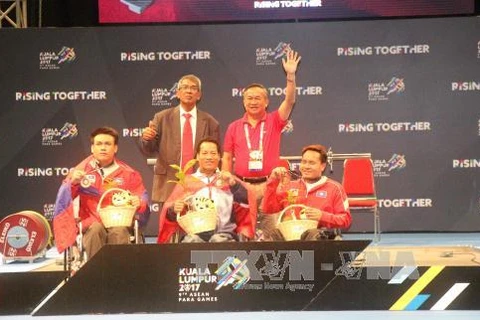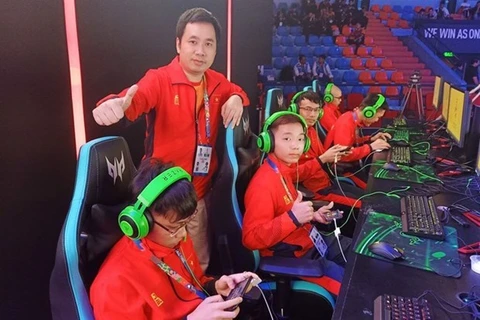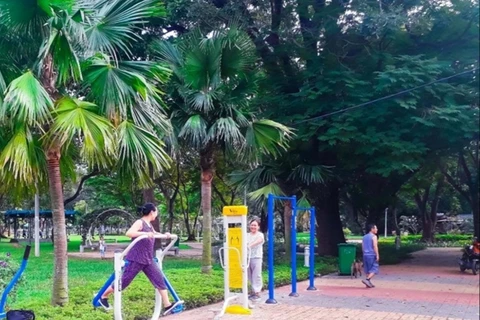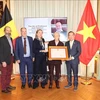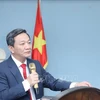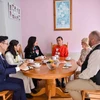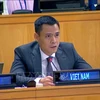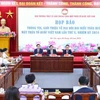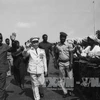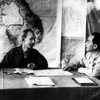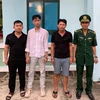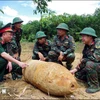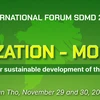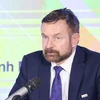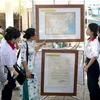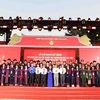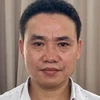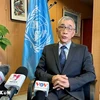 A conference titled ‘Sports Medicine for Health of Athletes and Community’ is held at the 175 Military Hospital in HCM City on January 28 (Photo: VNA)
A conference titled ‘Sports Medicine for Health of Athletes and Community’ is held at the 175 Military Hospital in HCM City on January 28 (Photo: VNA) Speaking at a conference held on January 28 to discuss sports medicine to improve athletes’ performance and recovery from injury, and preventing injuries, Luu Thien Suong of the Ho Chi Minh City University of Sport, said a lot of the research is into the role of genetics in sporting prowess.
Genetic tests have helped improve the efficiency of training selection of athletes, he said.
Many countries have realised the potential of genetics in personalising athletes’ individual training programmes and improve the efficiency of training, he said.
He suggested that the 175 Military Hospital should build a lab for DNA analysis to help improve the country’s sports.
Luong Vu Dung of the 175 Military Hospital recommended the use of cardiopulmonary exercise testing (CPET) for pre-participation evaluation of athletes.
It helps evaluate the physiological responses of body organs and systems to exercise and calculate the nutrition required for doing exercises, and also helps detect potential risks and conditions caused by strenuous exercises, he said, adding it is being applied at his hospital.
The hospital has a sports medicine department, invested further in infrastructure, facilities and human resources.
It is collaborating with the HCM City University of Sport and National Sports Training Centre to develop academic and research programmes for sports medicine.
It has adopted many advanced technologies. It has been doing shoulder arthroscopy, for instance, since 2010.
This technique helps improve the recognition of pathologic findings in shoulder dislocation, allows better understanding of the aetiology of instability and enables selective treatment of the injured structures, thus reducing the risk of iatrogenic damage.
It also helps reduce pain after surgery, hospitalisation time and the risk of complications, and improves early rehabilitation.
Shoulder dislocation is a very common injury in sport.
Sport is developing rapidly in the country and so sports medicine has become very important, but it faces a shortage of personnel and facilities.
The conference, titled ‘Sports Medicine for Health of Athletes and Community,’ was organised by the 175 Military Hospital and HCM City University of Sport, and attracted more than 400 delegates from the Ministry of Culture, Sports and Tourism, Vietnam Sports Administration, other relevant departments, sports training centres, sports teams, and military and civilian hospitals.
It highlighted prevention, treatment and care for injuries and trauma recovery./.
VNA
